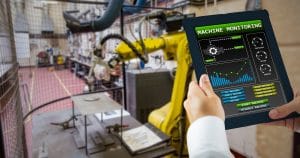 The field of manufacturing is often a proving ground for new technologies. For instance, manufacturing was the stage upon which automation first became a game-changer, and how the technology would affect manufacturing was one of the most talked-about impacts of it. Not long before that, the same was true for heat exchangers and the way manufacturers approached electrical thermal management. Today, heat exchangers still have notable impacts on the manufacturing industry. By simplifying thermal management, they help manufacturing equipment run more smoothly for longer while simultaneously reducing energy consumption.
The field of manufacturing is often a proving ground for new technologies. For instance, manufacturing was the stage upon which automation first became a game-changer, and how the technology would affect manufacturing was one of the most talked-about impacts of it. Not long before that, the same was true for heat exchangers and the way manufacturers approached electrical thermal management. Today, heat exchangers still have notable impacts on the manufacturing industry. By simplifying thermal management, they help manufacturing equipment run more smoothly for longer while simultaneously reducing energy consumption.
Smoother, More Efficient Operations
Automated technology became a significant part of manufacturing as an effort to keep companies competitive by streamlining repetitive operations. Automation frees up time for employees to be more productive, which in turn promotes more innovation within the company. Heat exchangers provided a way for the technology to run continuously without needing routine maintenance or interaction from employees. Even equipment that is not automated is often fitted with appropriate heat exchanger units to improve their overall performance, as well.
Safer Processing and Eco-Friendly Packaging
As manufacturing companies began to realize the myriad ways in which heat exchangers changed thermal management, they began to implement heat exchanger technology for more applications than just cooling control panels. For example, many food and beverage companies utilize heat exchanger technology for safer, more reliable processing of perishables. Waste water treatment plans use it to make treating waste water faster and more efficient. Even for applications as unique as molding, heat exchangers (such as thermal pins) can be a boon to overall productivity and thermal management.
To learn more about heat exchangers have continued to impact the manufacturing industry, call Noren Thermal, Inc. in Taylor, TX, at 866-936-6736.







